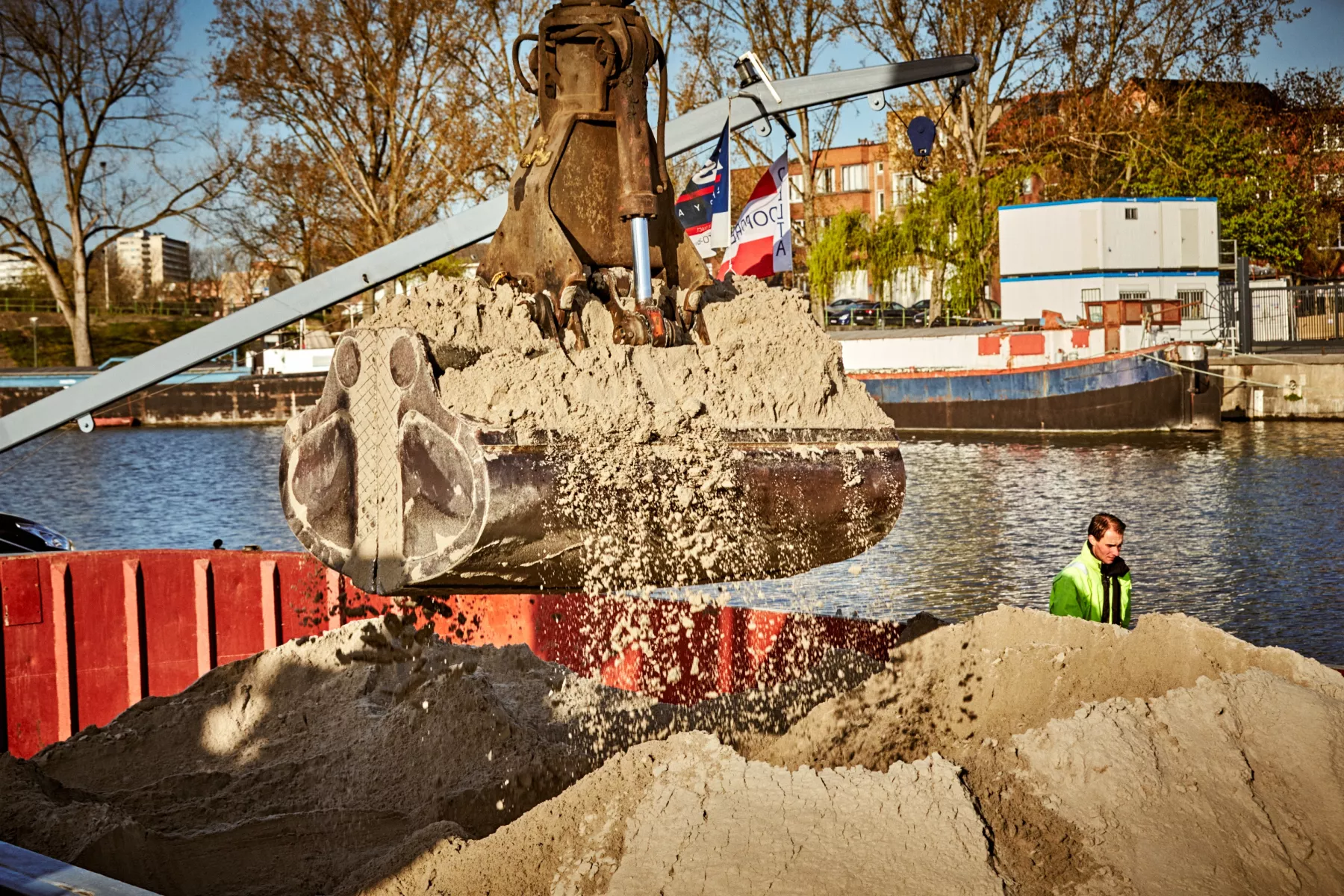Waterway traffic 2021
Another record year for brussels port traffic
With its trade of 6.6 million tons in 2020, the Port of Brussels recorded a new all-time record in terms of its own traffic. Since its creation in 1993, Brussels port traffic has increased by 50%, saving 96,000 tonnes of C02 each year and 2,000 fewer lorries on our roads each day.

Global traffic (in thousands of tons)
| 2020 | 2019 | Evolution 2020-2019 | 1993 | Evolution 2019-1993 | |
|---|---|---|---|---|---|
| Own traffic | 4 945 | 5 222 | -5,3% | 3 497 | 49,3% |
| Transit | 1 704 | 1 404 | 21,4% | 1 593 | -11,9% |
| Total | 6 649 | 6 625 | 0,.% | 5 90 | 30,2% |
Own traffic per merchandise category (in thousands of tons)
| 2020 | 2019 | Evolution 2020 2019 |
|
|---|---|---|---|
|
Construction materials |
3 080 | 3 251 | -5% |
|
Petrol products |
1 036 | 1 123 | -8% |
|
Miscellaneous (containers) |
451 | 472 | -4% |
|
Agricultural products |
190 | 189 | 0,5% |
|
Minerals & ore |
85 | 85 | 0% |
|
Food products |
74 | 62 | 19,4% |
|
Metallurgical products |
7 | 12 | -41,7% |
|
Chemical products |
22 | 28 | -21% |
|
Total own traffic |
4 945 | 5 222 | -5,3% |
Construction materials alone account for more than 60% of port traffic by water in Brussels. Although declining, petroleum products occupy second place, with containers as number three.
The significant increase also recorded in pallet and container transport by water concerns goods with high added value and is therefore excellent news for the Brussels economy.
Container traffic
| 2020 | 2019 | Evolution 2020-2019 |
|
|---|---|---|---|
|
In thousands of gross tons |
439 | 442 | -1% |
|
TEU |
42 452 | 44 519 | -5% |
|
ITU |
29 110 | 30 987 | -6% |
Representing over 60% of the traffic, the Netherlands are the port of Brussels’ primary commercial partner.
Passenger traffic is also growing dramatically! More than 60,000 people used the Brussels waterway in 2019.
This development of water transport is a key element in the Brussels Capital Region’s activities in protecting the environment and combatting global warming.
The Port is a true lever in implementing a greener economy, and since this is the future of the Brussels Capital Region’s economy, the Port is an ever more important tool in economic transition and the development of a circular economy.
